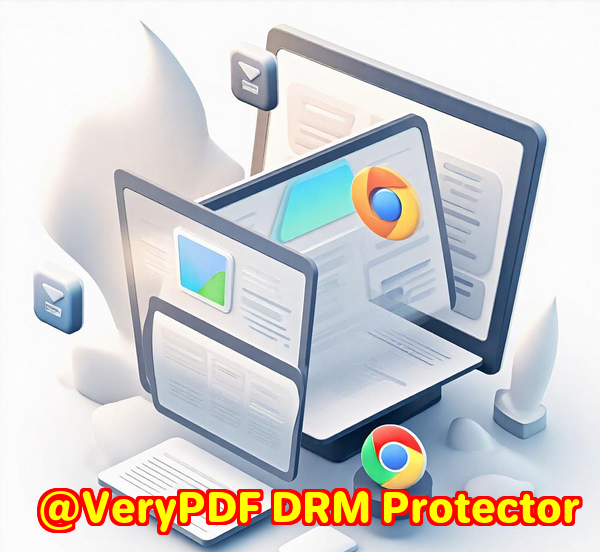Use OCR to Digitize Scanned Books and Store Them in Compressed PDFA Format
Meta Description:
Tired of unsearchable scanned PDFs? Here’s how I use VeryPDF to OCR and compress scanned books into PDFA format for long-term storage.
I had shelves full of scanned books I couldn’t even search through
Every time I needed to reference a quote or pull a section from an old scanned book, I’d waste 20 minutes scrolling, guessing, and zooming in on blurry pages.

You know the drill.
I’d OCR them with one tool compress them with another then realise the formatting broke somewhere in between.
It was slow, painful, and most of the tools either corrupted the files or didn’t handle batch processing well.
That’s when I stumbled on VeryPDF PDF Solutions for Developers.
Game-changer.
I didn’t think I’d ever be excited about file conversion software, but here we are.
The tool that finally fixed my scanned PDF nightmare
Let me tell you why VeryPDF stood out from the sea of overpriced, underperforming PDF tools.
First offit does everything in one workflow.
OCR?
Compressing massive files?
Saving to archive-ready PDF/A format?
Handling hundreds of documents at once without choking?
If you’re someone who works with scanned documentsthink researchers, legal clerks, librarians, publishers, or even accountantsthis software was made for you.
I’m not a developer, but I found it dev-friendly and customisable, with automation options and SDKs that don’t require a PhD to implement.
Here’s what I actually used it for (and how it saved my sanity)
1. OCR that doesn’t mess up formatting
Most OCR tools I’ve used were okay at recognising textbut mess up the layout, spacing, or structure. Not this one.
With VeryPDF, I digitised an entire collection of scanned legal textbooks and made every single one fully searchable.
No broken headings. No shifted tables. No lost footnotes.
Best part?
I set up batch OCR in one go, let it run overnight, and by morning I had 73 searchable PDFs, all preserved in their original look.
That would’ve taken me weeks with my old setup.
2. Converted everything into PDF/A for long-term archiving
I used to save files as regular PDFs and hope for the best.
Turns out, that’s a terrible idea if you care about future-proofing your work.
PDF/A is the gold standard for long-term storageespecially if you want your files to stay readable 10 years down the line.
With VeryPDF’s PDF/A conversion tool, I was able to:
-
Convert to PDF/A-1, PDF/A-2, and PDF/A-3
-
Validate the files instantly to make sure they complied with ISO standards
-
Preserve metadata like author, subject, and keywords
All of this was done in batches.
Set it once, walk away, done.
3. Insane compression without losing quality
Let’s be realscanned books are HUGE.
Before this, I had files that were 600MB+ for a 200-page scan.
After running them through VeryPDF’s compression toolkit, they shrunk down to under 40MB with no visible quality drop.
No joke.
It uses:
-
Mixed raster content (MRC) compression
-
Font subsetting (only embeds characters you actually use)
-
Image downsampling and smart colour conversion
And guess what?
The PDFs still looked crisp on retina screens.
I could finally send them over email, back them up on the cloud, or even read them on mobile without choking the device.
How this stacks up against other tools I’ve tried
Adobe Acrobat Pro?
Costs a fortune, slow on large batches, and doesn’t offer the level of compression I need.
Free online OCR tools?
They cap out at a few pages, butcher the formatting, and are shady when it comes to privacy.
Other dev libraries?
Require you to Frankenstein your own solution using five different SDKs.
With VeryPDF, it’s all in one place.
You get:
-
OCR
-
PDF/A compliance
-
Batch processing
-
Image optimisation
-
File size reduction
-
Metadata management
And it’s built to scale.
Who should use this?
If you tick any of these boxes, this software is worth checking out:
-
You work in legal, education, research, archives, or corporate documentation
-
You deal with scanned PDFs, TIFFs, or old paper archives
-
You want to digitise and compress documents in bulk
-
You need to preserve files long-term in an ISO-compliant format
-
You’re tired of switching between five different tools to get one thing done
Final thoughts: This tool did what others couldn’t
Honestly?
I didn’t expect much when I first downloaded VeryPDF.
But now I can’t imagine going back.
If you’ve got a mountain of scanned PDFs sitting aroundor if you’re trying to build a searchable, future-proof document archiveVeryPDF PDF Solutions for Developers is the way to go.
It saved me hours of manual work, and more importantly, it gave me confidence that my digital library won’t fall apart a few years from now.
Start your free trial and check it out here:
https://www.verypdf.com/
Custom development services that go the extra mile
One more thing: VeryPDF isn’t just a set of toolsthey build custom solutions too.
If you’ve got complex needs or unusual formats, they’ll design software that fits.
Whether you’re working on Linux, Windows, macOS, mobile, or cloud platformsthey’ve got you covered.
Need a PDF printer driver that generates PDFs on the fly?
Want to intercept print jobs or monitor system APIs?
Looking to implement OCR table recognition, barcode scanning, or digital signatures into your workflow?
Yeah, they do all that.
And if you’re serious about scaling your document workflows, these guys can build it exactly how you want.
Reach out through their support centre and tell them what you need:
https://support.verypdf.com/
FAQs
How do I OCR scanned books into searchable PDF/A files?
Use VeryPDF’s OCR + PDF/A tools to scan, digitise, and archive in one workflow. Just drag and drop your files and let it run.
Can I compress large scanned PDFs without losing quality?
Absolutely. VeryPDF uses smart image and font optimisation, reducing size by up to 90% while preserving quality.
What is PDF/A and why should I care?
PDF/A is a long-term archive format that ensures your files remain accessible years from now. It’s critical for compliance and document preservation.
Can VeryPDF handle batch processing of hundreds of files?
Yes. It’s built to process high volumes with automation options. I OCRed over 70 scanned books in one night.
Do I need to be a developer to use VeryPDF PDF Solutions?
Not at all. While it’s dev-friendly, many tools are easy to use even if you’re not technical. And if you are a dev, there are APIs and SDKs ready to go.
Tags / Keywords
digitise scanned books, PDF/A archive, OCR scanned PDFs, compress scanned PDFs, batch convert PDFs, searchable PDFs, VeryPDF OCR tool, scanned PDF optimisation, document archival tools, long-term PDF storage
